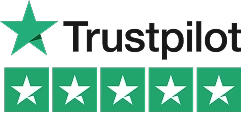
The cybersecurity industry continues to experience unprecedented growth, with global spending expected to reach $345 billion by 2026. However, despite this massive market opportunity, many cybersecurity companies struggle to effectively communicate their value proposition and generate qualified leads. This is precisely where we, as specialized cybersecurity marketing agencies, make the difference.
At Whiz Marketers, we understand that marketing cybersecurity solutions requires a unique approach. Unlike traditional B2B marketing, cybersecurity marketing demands deep technical knowledge, industry credibility, and the ability to translate complex security concepts into compelling business value. Throughout this comprehensive guide, we’ll explore proven strategies that help cybersecurity companies dominate their market and accelerate growth.
Understanding the Cybersecurity Marketing Landscape
The cybersecurity marketing landscape presents both tremendous opportunities and significant challenges. Consequently, we’ve observed that traditional marketing approaches often fall short when applied to cybersecurity products and services.
Key Market Dynamics:
- Decision-makers are highly technical and skeptical of marketing messages
- Sales cycles are typically 6-18 months for enterprise solutions
- Trust and credibility are paramount in purchasing decisions
- Compliance and regulatory considerations heavily influence buying patterns
Furthermore, the cybersecurity audience expects educational content that demonstrates expertise rather than promotional materials. We’ve found that companies succeeding in this space focus on building thought leadership through valuable insights and industry expertise.
The Role of Specialized Cybersecurity Marketing Agencies
Cybersecurity marketing services require specialized knowledge that general marketing agencies simply cannot provide. We bring industry-specific expertise that includes:
- Understanding of cybersecurity terminology and concepts
- Knowledge of regulatory frameworks (SOC 2, GDPR, HIPAA)
- Familiarity with security vendor ecosystems
- Insight into CISO and security team decision-making processes
Moreover, successful cybersecurity marketing agencies understand the importance of building long-term relationships rather than focusing solely on immediate conversions. This relationship-building approach is essential because cybersecurity purchases often involve significant risk and investment.
Developing Your Cybersecurity Marketing Strategy
Creating an effective cybersecurity marketing strategy begins with understanding your unique value proposition and target audience. We recommend starting with a comprehensive market analysis and competitor assessment.
Target Audience Segmentation
Effective B2B cybersecurity marketing requires precise audience segmentation. We typically identify three primary audience segments:
Technical Evaluators:
- Security engineers and architects
- IT administrators and network specialists
- Compliance and risk management professionals
Business Decision Makers:
- CISOs and security executives
- IT directors and CTOs
- Risk management officers
Financial Stakeholders:
- CFOs and budget administrators
- Procurement professionals
- Board members and executives
Each segment requires tailored messaging and content approaches. For instance, technical evaluators need detailed product specifications and integration capabilities, while business decision makers focus on ROI and risk mitigation benefits.
Competitive Analysis and Positioning
The cybersecurity market is highly competitive, making strategic positioning crucial for success. We conduct comprehensive competitive analyses that examine:
- Messaging and value propositions
- Content marketing strategies
- Digital marketing tactics
- Pricing and packaging approaches
Subsequently, we help our clients identify unique positioning opportunities that differentiate their solutions from competitors. This positioning forms the foundation of all marketing communications and campaigns.
Content Marketing Excellence for Cybersecurity Companies
Cybersecurity content marketing serves as the cornerstone of successful digital marketing strategies in this industry. We’ve discovered that educational, value-driven content consistently outperforms promotional materials in generating qualified leads.
Content Types That Drive Results
Our experience shows that certain content formats perform exceptionally well in cybersecurity marketing:
Educational Resources:
- Technical whitepapers and research reports
- Implementation guides and best practices
- Industry trend analyses and predictions
- Compliance and regulatory updates
Interactive Content:
- Security assessments and maturity models
- ROI calculators and cost analysis tools
- Interactive demos and product tours
- Webinars and virtual events
Thought Leadership:
- Executive insights and industry commentary
- Case studies and success stories
- Speaking engagements and conference presentations
- Podcast appearances and interviews
Additionally, we emphasize the importance of creating content that addresses specific pain points and challenges faced by cybersecurity professionals. This approach builds trust and positions our clients as knowledgeable partners rather than mere vendors.
Content Distribution Strategies
Creating exceptional content is only half the equation; effective distribution is equally important. We employ multi-channel distribution strategies that maximize content reach and engagement:
| Distribution Channel | Primary Audience | Content Types | Success Metrics |
| Business executives | Thought leadership, case studies | Engagement rate, shares | |
| Security forums | Technical professionals | Technical guides, tutorials | Downloads, comments |
| Industry publications | Mixed audience | Research reports, insights | Brand mentions, traffic |
| Email marketing | Existing contacts | Updates, educational content | Open rates, click-through |
| Webinars | Qualified prospects | Deep-dive presentations | Attendance, lead generation |
Furthermore, we track content performance across all channels to continuously optimize our distribution strategies and maximize ROI.
Lead Generation Strategies That Work
Cyber security lead generation services require sophisticated approaches that go beyond traditional B2B tactics. We’ve developed proven methodologies that consistently generate high-quality leads for cybersecurity companies.
Account-Based Marketing (ABM) for Cybersecurity
Account-based marketing has proven particularly effective in the cybersecurity sector due to the high-value nature of enterprise deals. Our ABM approach includes:
Target Account Identification:
- Firmographic and technographic data analysis
- Intent data monitoring and analysis
- Competitive displacement opportunities
- Budget and timing considerations
Personalized Engagement Campaigns:
- Customized content for specific accounts
- Multi-touch nurture sequences
- Executive-to-executive outreach programs
- Tailored event and webinar invitations
Sales and Marketing Alignment:
- Shared account intelligence and insights
- Coordinated outreach and follow-up processes
- Joint account planning and strategy sessions
- Revenue attribution and performance tracking
Moreover, we ensure that all ABM activities are carefully coordinated between sales and marketing teams to maximize effectiveness and avoid conflicting outreach efforts.
Digital Advertising for Cybersecurity Companies
Expert cybersecurity digital marketing solutions include sophisticated advertising strategies tailored to the unique characteristics of security buyers. We focus on channels and tactics that effectively reach cybersecurity decision-makers:
LinkedIn Advertising:
- Sponsored content targeting security professionals
- Message ads for direct executive outreach
- Dynamic ads for account-based targeting
- Event promotion and webinar registration
Google Ads and Search Marketing:
- High-intent keyword targeting
- Competitor comparison campaigns
- Technical solution searches
- Compliance and regulatory queries
Industry Publication Advertising:
- Native content placement
- Display advertising in security publications
- Sponsored newsletter placements
- Event and conference sponsorships
Additionally, we implement sophisticated tracking and attribution models to measure the full customer journey from initial awareness through closed deals.
SEO and Content Marketing Services for Cybersecurity
SEO and content marketing services play a critical role in establishing thought leadership and generating organic traffic. We develop comprehensive SEO strategies specifically designed for cybersecurity companies.
Technical SEO for Cybersecurity Websites
Cybersecurity websites often face unique technical challenges that can impact search performance. Our technical SEO approach addresses:
- Site security and SSL implementation
- Page load speed optimization
- Mobile responsiveness and user experience
- Schema markup for technical content
- Internal linking strategies for complex product portfolios
Furthermore, we ensure that all technical implementations align with cybersecurity best practices, maintaining the credibility and trust that is essential in this industry.
Keyword Strategy and Content Optimization
Our keyword research process focuses on identifying high-value terms that cybersecurity buyers actually use when searching for solutions:
Primary Keyword Categories:
- Solution-specific terms (endpoint security, SIEM, etc.)
- Problem-focused keywords (data breach prevention, compliance automation)
- Competitive comparison terms
- Industry-specific searches (healthcare cybersecurity, financial services security)
Long-tail Keyword Opportunities:
- Specific use case scenarios
- Integration and compatibility queries
- Compliance requirement searches
- Technical implementation questions
Moreover, we develop content clusters around core topics to establish topical authority and improve overall search visibility.
Cybersecurity Marketing Campaigns That Convert
Successful cybersecurity marketing campaigns require careful planning, precise execution, and continuous optimization. We’ve developed proven campaign frameworks that consistently deliver results for our clients.
Campaign Planning and Strategy
Our campaign development process begins with clear objective setting and audience definition:
Campaign Objectives:
- Lead generation and pipeline development
- Brand awareness and thought leadership
- Product launch and market education
- Competitive displacement and market share growth
Audience Targeting:
- Persona-based messaging and creative development
- Channel-specific audience segmentation
- Account-based targeting for enterprise campaigns
- Retargeting strategies for nurturing prospects
Creative Development:
- Value proposition testing and optimization
- Multi-format creative asset development
- Personalization and dynamic content creation
- Cross-channel consistency and brand alignment
Subsequently, we implement comprehensive tracking and measurement systems to monitor campaign performance and optimize results in real-time.
Multi-Channel Campaign Execution
Effective cybersecurity marketing campaigns leverage multiple channels to maximize reach and reinforce messaging:
Digital Channels:
- Search engine marketing and optimization
- Social media advertising and organic content
- Email marketing and marketing automation
- Content marketing and thought leadership
- Webinars and virtual events
Traditional Channels:
- Industry conferences and trade shows
- Direct mail and account-based outreach
- Public relations and media coverage
- Speaking engagements and panel discussions
- Partner and channel marketing
Additionally, we ensure that all campaign elements work together synergistically to create a cohesive and compelling brand experience across all touchpoints.
Marketing Automation and Technology Stack
Modern Cybersecurity marketing agency require sophisticated technology platforms to manage complex buyer journeys and long sales cycles effectively.
Essential Marketing Technology Components
Our recommended technology stack for cybersecurity marketing includes:
Customer Relationship Management (CRM):
- Salesforce, HubSpot, or Pipedrive for lead management
- Integration with marketing automation platforms
- Custom fields for cybersecurity-specific data
- Pipeline and forecasting capabilities
Marketing Automation Platform:
- Lead nurturing and email marketing
- Behavioral tracking and scoring
- Campaign management and reporting
- A/B testing and optimization tools
Analytics and Reporting:
- Google Analytics for website performance
- Marketing attribution and ROI analysis
- Campaign performance dashboards
- Custom reporting and business intelligence
Furthermore, we ensure that all technology components integrate seamlessly to provide a unified view of marketing performance and customer interactions.
Data-Driven Marketing Optimization
Cost-effectively managing cybersecurity marketing requires continuous optimization based on data-driven insights. We implement comprehensive analytics frameworks that track:
- Lead quality and conversion rates
- Content performance and engagement metrics
- Campaign ROI and attribution analysis
- Sales cycle length and velocity improvements
- Customer acquisition cost and lifetime value
Moreover, we use these insights to continuously refine targeting, messaging, and channel strategies to maximize marketing effectiveness and ROI.
Measuring Success and ROI
Demonstrating marketing ROI is particularly important in the cybersecurity industry, where marketing budgets face scrutiny and accountability is paramount.
Key Performance Indicators (KPIs)
We track comprehensive metrics that align with business objectives and demonstrate marketing impact:
Lead Generation Metrics:
- Marketing qualified leads (MQLs) generated
- Sales qualified leads (SQLs) converted
- Lead-to-customer conversion rates
- Cost per lead and cost per acquisition
Revenue Attribution:
- Marketing-influenced pipeline value
- Marketing-sourced revenue
- Customer lifetime value impact
- Revenue cycle velocity improvements
Brand and Engagement Metrics:
- Website traffic and engagement improvements
- Content consumption and sharing rates
- Social media reach and engagement
- Brand awareness and sentiment tracking
Additionally, we provide regular reporting and analysis that demonstrates the connection between marketing activities and business results.
Building Your Cybersecurity Marketing Team
Successfully executing cybersecurity marketing strategies requires the right combination of marketing expertise and industry knowledge.
In-House vs. Agency Considerations
Cybersecurity Marketing Firm partnerships offer several advantages over building in-house capabilities:
Agency Benefits:
- Immediate access to specialized expertise
- Established industry relationships and networks
- Proven processes and methodologies
- Scalable resources based on needs
- Cost-effective compared to full-time hires
In-House Advantages:
- Deep company and product knowledge
- Dedicated focus and attention
- Direct integration with sales and product teams
- Long-term relationship building
- Internal culture and brand alignment
Many successful cybersecurity companies adopt a hybrid approach, maintaining core marketing functions in-house while partnering with specialized agencies for specific expertise and capabilities.
“The most successful cybersecurity marketing programs combine deep industry expertise with innovative marketing techniques. It’s not enough to understand marketing or cybersecurity alone – you need both.” – Leading Cybersecurity CMO
Cost-Effective Marketing Solutions
Managing marketing budgets effectively while driving growth requires strategic resource allocation and optimization.
Budget Allocation Best Practices
We recommend the following budget allocation framework for cybersecurity companies:
- 40% – Digital marketing and advertising
- 25% – Content creation and thought leadership
- 15% – Events and trade shows
- 10% – Marketing technology and tools
- 10% – Agency and consulting services
However, these allocations should be adjusted based on company size, growth stage, and specific market conditions. Early-stage companies may invest more heavily in content and thought leadership, while established companies might focus more on demand generation and advertising.
Maximizing Marketing ROI
Cost-effectively managing cybersecurity marketing requires focus on high-impact activities and continuous optimization:
High-ROI Activities:
- Educational content marketing
- Account-based marketing for enterprise targets
- Customer success stories and case studies
- Industry thought leadership and speaking
- Search engine optimization
Optimization Strategies:
- Regular performance analysis and adjustment
- A/B testing of messaging and creative
- Attribution modeling and analysis
- Channel performance optimization
- Conversion rate improvement initiatives
Furthermore, Whiz Marketers help our clients establish clear ROI measurement frameworks that demonstrate the business impact of marketing investments.
Future Trends in Cybersecurity Marketing
The cybersecurity marketing landscape continues to evolve, driven by changing buyer behaviors, new technologies, and emerging threats.
Emerging Marketing Trends
Several trends are shaping the future of cybersecurity marketing:
Artificial Intelligence and Automation:
- Predictive analytics for lead scoring
- Automated content personalization
- Chatbots for initial prospect engagement
- AI-driven campaign optimization
Video and Interactive Content:
- Product demonstrations and tutorials
- Executive interviews and thought leadership
- Interactive security assessments
- Virtual reality training and simulations
Community Building and Peer Networks:
- User communities and forums
- Customer advisory boards
- Industry roundtables and peer groups
- Collaborative content creation
Additionally, we anticipate increased focus on privacy-compliant marketing techniques and first-party data strategies as regulatory requirements continue to evolve.
Key Takeaways
- Cybersecurity marketing requires specialized expertise and industry knowledge that general marketing agencies cannot provide
- Content marketing and thought leadership are essential for building trust and credibility in the cybersecurity market
- Account-based marketing and personalized campaigns generate higher-quality leads and better conversion rates
- Multi-channel marketing approaches maximize reach and reinforce messaging across all touchpoints
- Data-driven optimization and ROI measurement are critical for demonstrating marketing value and securing budget
- The cybersecurity marketing landscape continues to evolve, requiring continuous adaptation and innovation
Frequently Asked Questions
Q: How long does it take to see results from cybersecurity marketing campaigns?
A: Cybersecurity marketing typically requires 3-6 months to show initial results, with full campaign optimization taking 9-12 months. The long sales cycles in this industry require patience and consistent execution.
Q: What makes cybersecurity marketing different from other B2B marketing?
A: Cybersecurity marketing requires deeper technical knowledge, longer relationship-building periods, and higher levels of trust and credibility. Security buyers are typically more skeptical and require extensive education and proof points.
Q: How much should cybersecurity companies invest in marketing?
A: Most successful cybersecurity companies invest 15-25% of revenue in marketing, with early-stage companies often investing 30% or more to establish market presence and drive growth.
Q: What content types work best for cybersecurity marketing?
A: Educational whitepapers, technical guides, case studies, and thought leadership content perform best. Interactive content like assessments and calculators also generate high engagement and lead conversion.
Q: Should cybersecurity companies work with specialized marketing agencies?
A: Yes, specialized cybersecurity marketing agencies bring industry expertise, established relationships, and proven methodologies that general marketing agencies cannot match. They understand the unique challenges and requirements of marketing in this industry.
Q: How important is SEO for cybersecurity companies?
A: SEO is extremely important for cybersecurity companies, as many buyers begin their research with search engines. Technical SEO and content optimization help establish thought leadership and generate organic traffic from high-intent prospects.
Conclusion
Successfully marketing cybersecurity solutions requires a sophisticated blend of industry expertise, marketing acumen, and strategic execution. As we’ve explored throughout this guide, the cybersecurity market presents unique challenges that demand specialized approaches and deep understanding of buyer behaviors.





